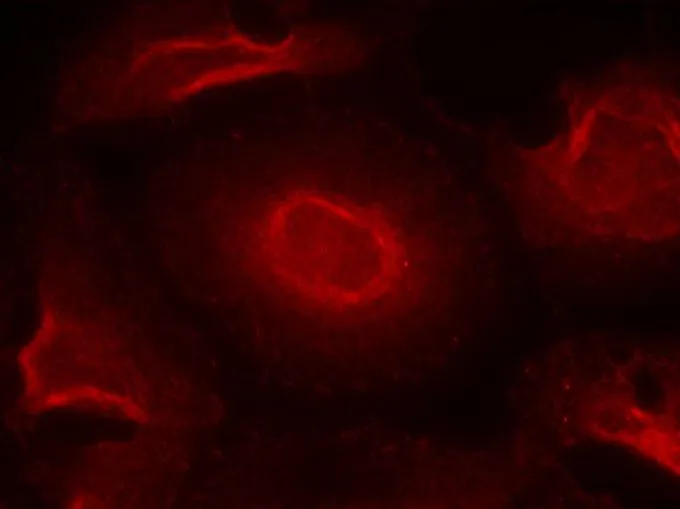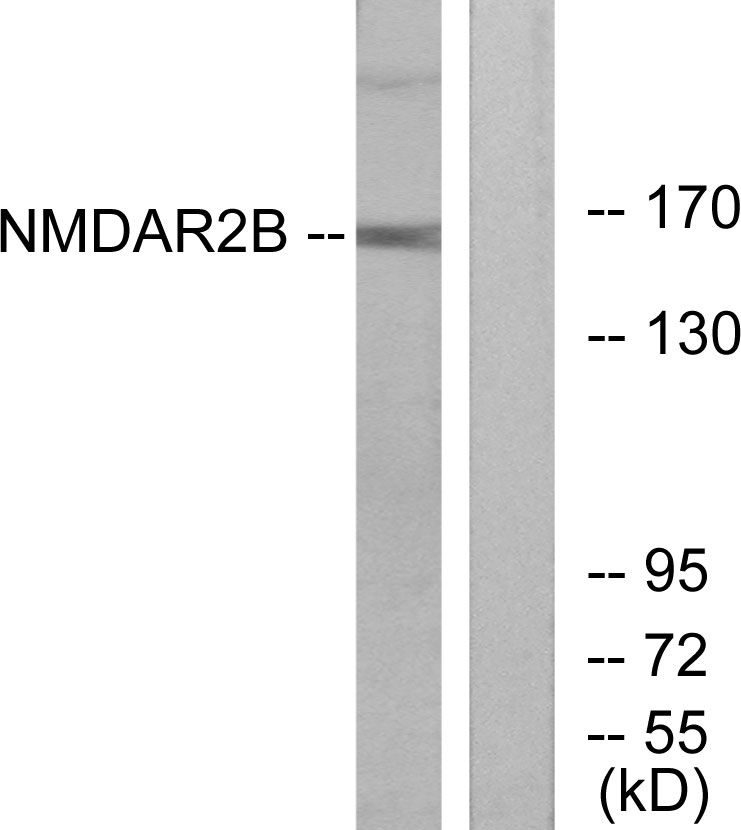
ICC/IF analysis of methanol-fixed HeLa cells using GTX50496 NMDAR2B antibody.
NMDAR2B antibody
GTX50496
ApplicationsImmunoFluorescence, ImmunoCytoChemistry
Product group Antibodies
TargetGRIN2B
Overview
- SupplierGeneTex
- Product NameNMDAR2B antibody
- Delivery Days Customer9
- Application Supplier NoteICC/IF: 1:100-1:200. *Optimal dilutions/concentrations should be determined by the researcher.Not tested in other applications.
- ApplicationsImmunoFluorescence, ImmunoCytoChemistry
- CertificationResearch Use Only
- ClonalityPolyclonal
- Concentration1 mg/ml
- ConjugateUnconjugated
- Gene ID2904
- Target nameGRIN2B
- Target descriptionglutamate ionotropic receptor NMDA type subunit 2B
- Target synonymsDEE27, EIEE27, GluN2B, MRD6, NMDAR2B, NR2B, NR3, hNR3, glutamate receptor ionotropic, NMDA 2B, GluN2B(alt_5'UTR), N-methyl D-aspartate receptor subtype 2B, N-methyl-D-aspartate receptor subunit 3, glutamate [NMDA] receptor subunit epsilon-2, glutamate receptor subunit epsilon-2, glutamate receptor, ionotropic, N-methyl D-aspartate 2B
- HostRabbit
- IsotypeIgG
- Protein IDQ13224
- Protein NameGlutamate receptor ionotropic, NMDA 2B
- Scientific DescriptionThis gene encodes a member of the N-methyl-D-aspartate (NMDA) receptor family within the ionotropic glutamate receptor superfamily. The encoded protein is a subunit of the NMDA receptor ion channel which acts as an agonist binding site for glutamate. The NMDA receptors mediate a slow calcium-permeable component of excitatory synaptic transmission in the central nervous system. The NMDA receptors are heterotetramers of seven genetically encoded, differentially expressed subunits including NR1 (GRIN1), NR2 (GRIN2A, GRIN2B, GRIN2C, or GRIN2D) and NR3 (GRIN3A or GRIN3B). The early expression of this gene in development suggests a role in brain development, circuit formation, synaptic plasticity, and cellular migration and differentiation. Naturally occurring mutations within this gene are associated with neurodevelopmental disorders including autism spectrum disorder, attention deficit hyperactivity disorder, epilepsy, and schizophrenia. [provided by RefSeq, Aug 2017]
- Storage Instruction-20°C or -80°C,2°C to 8°C
- UNSPSC12352203




![IHC-P analysis of human breast tissue using GTX80691 NMDAR2B antibody [NR2B]. Right : Primary antibody Left : Negative control without primary antibody Antigen retrieval : 10mM sodium citrate (pH 6.0), microwaved for 8-15 min Dilution : 1:20](https://www.genetex.com/upload/website/prouct_img/normal/GTX80691/GTX80691_1408_IHC-P_w_23061322_716.webp)
